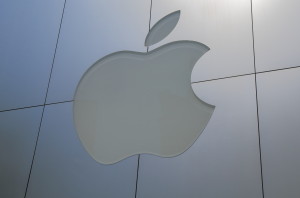
Why Apple Isn’t Biting on ‘Data for Discounts’ Model

Apple is the most valuable company in the history of the world, with millions of loyal customers using its devices and software to communicate and connect to the Internet. Despite being in prime situation to mine its customer’s data for even bigger profits, Apple steadfastly refuses to partake of the “data for discounts” model, raising the inevitable question: Why?
The big data business model was popularized by Silicon Valley firms like Google, Yahoo, and Facebook, which figured out they could offer services like online email and a social media platform to customers in exchange for access to customer’s data. When you use these services, as the saying goes, you’re not actually the customer–you’re the product.
Since Google rolled out Gmail in 2005, the popularity of the business model has grown, and customers have gotten used to giving up their information in exchange for a product or service—whether it’s streaming music or a game. That’s emboldened companies to gather all kinds of data about their customers–their purchase history, cell phone GPS data, Web browsing history, video and music preferences, and social networks–in hopes of painting a clearer picture of the individual to more accurately pitch them other products and services.
Companies across many industries now treat their customer’s data as a form of currency that can be bought and sold. Just don’t count Apple among them.
Last month, Apple CEO Tim Cook gave a speech in which he criticized this business model, and basically called it un-American. “Like many of you, we at Apple reject the idea that our customers should have to make tradeoffs between privacy and security,” Cook told attendees of a conference hosted by EPIC, a research center focused on privacy and civil liberties issues, according to a story on TechCrunch.

Apple CEO Tim Cook doesn’t support the “data for discounts” business model of his Silicon Valley peers
“I’m speaking to you from Silicon Valley, where some of the most prominent and successful companies have built their businesses by lulling their customers into complacency about their personal information,” Cook said. “They’re gobbling up everything they can learn about you and trying to monetize it. We think that’s wrong. And it’s not the kind of company that Apple wants to be.”
Investors are obviously impressed with how well Apple is executing on its business strategy without trading on its customers’ data. Perhaps being worth close to a trillion dollars gives Apple some breathing room from profit-hungry investors.
Cook isn’t the only one speaking out against this big data business model, and others are expressing unease with the situation. Last month, University of Pennsylvania researchers published a paper, titled “The Tradeoff Fallacy,” which explored some of the reasons people give up their data in exchange for services.
The university’s Anneberg School for Communication conducted a survey, which concluded that marketers “are misrepresenting a large majority of Americans by claiming that Americans give out information about themselves as a tradeoff for benefits they receive. To the contrary, the survey reveals most Americans do not believe that ‘data for discounts’ is a square deal,” the researchers wrote.
According to the survey:
- 91% disagree (77% of them strongly) with the following statement: “If companies give me a discount, it is a fair exchange for them to collect information about me without my knowing.”
- More than 70% disagree with the following statement: “It’s fair for an online or physical store to monitor what I’m doing online when I’m there, in exchange for letting me use the store’s wireless internet, or Wi-Fi, without charge.”
- And 55% disagree with this statement: “It’s okay if a store where I shop uses information it has about me to create a picture of me that improves the services they provide for me.”
These sorts of business practices are becoming more common as the amount of data available to marketers increases, and marketers’ skill in using new technologies to mine the data increases. There are more legitimate reasons to explore customer’s data of course, such as to improve service, detect unhappy customers, or figure out why customers are “churning,” and in many cases it doesn’t even require access to data at the individual level–low level aggregates will do.
But the drive toward more granular marketing is a powerful one, and marketers are constantly pushing toward the ultimate goal: one to one market. However, it looks as though a core premise to many big data analytic practices–that consumers willingly make these “data for discount” tradeoffs to obtain products or services—could be false.
According to the University of Pennsylvania researchers, instead of willingly giving up their data in exchange for products and services, American consumers are grudgingly giving their data because they don’t see any other choice. They call it a form of “resignation.”
“One issue raised by the findings is that Americans’ are resigned regarding their ability to control the information marketers can collect and use about them,” the researchers said. “Resigned individuals may behave in ways that allow marketers to claim they are unconcerned or accept the economic logic that insists people trade their data for benefits. We found instead that most Americans reject this logic.
“They also express concerns about how their data are being used and don’t believe marketers give them input into it,” they continued. “A consequence of this broad sense of futility, perhaps even disrespect, is that over the next decades Americans might reject the legitimacy of a central institution: marketing and consumer commerce. This will have a destabilizing ripple effect on many aspects of American life.”
Related Items:
Is Big Data the Next Big Civil Rights Issue?
How Big Data Can Help the Sick and Poor
Feds Strive to Balance Data Sharing and Risk






























